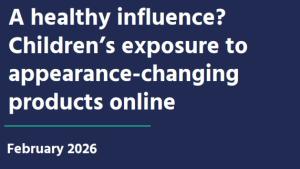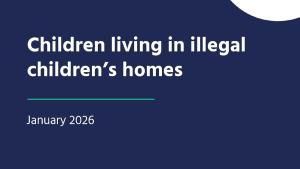Since the start of the Covid pandemic, the Children’s Commissioner’s Office has investigated and highlighted concerns about the treatment of children in secure settings. Our briefing in May used data collected from the Youth Custody Service (YCS) alongside a series of interviews with children to shine a light on conditions for children in custody during the pandemic. The briefing highlighted a number of concerns about the impact increased restrictions were having on children, including a significant impact on mental health and wellbeing.
In July, the then Chief Inspector of Prisons, Peter Clarke, wrote that:
“…in prisons, there is now a real risk of psychological decline among prisoners, which needs to be addressed urgently, so that prisoners, children and detainees do not suffer long-term damage to their mental health and well-being, and prisons can fulfil their rehabilitative goals”.
There have been some positive developments since the first lockdown. The YCS publicly committed to the importance of maintaining education for children and acknowledged the need for family contact, prioritising face to face visits for children from August. The importance of face-to-face contact with independent advocates has also been acknowledged and advocates are now on site, which was not the case during the first lockdown.
But there continue to be concerning findings from inspectorates – Ofsted’s inspection found the situation in Rainsbrook Secure Training Centre (STC) was so dire that the Urgent Notification process was triggered in December. Perhaps most shocking in Ofsted’s report was the revelation that newly arrived children spent two whole weeks locked in their cells, except for 30 minutes per day. A policy devised to reduce the risk of bringing infection into Rainsbrook STC has in practice led to children being, for all intents and purposes, in solitary confinement for two weeks, which casts serious doubt on central oversight arrangements, and how effectively they are monitoring the lived experiences of children in custody.
Nine months and two lockdowns on from our first briefing, this update shows that in many cases the offer to children – particularly in Young Offender Institutions (YOIs) – remains inconsistent. While staff in many individual establishments are working as flexibly as possible to do their best for children, the existing resources only go so far. Many children are still spending long periods locked alone in their cells, which is likely to have a profound effect on their psychological wellbeing in the long term. This could serve to undermine their rehabilitation and impede their resettlement back into the community when they are released.




